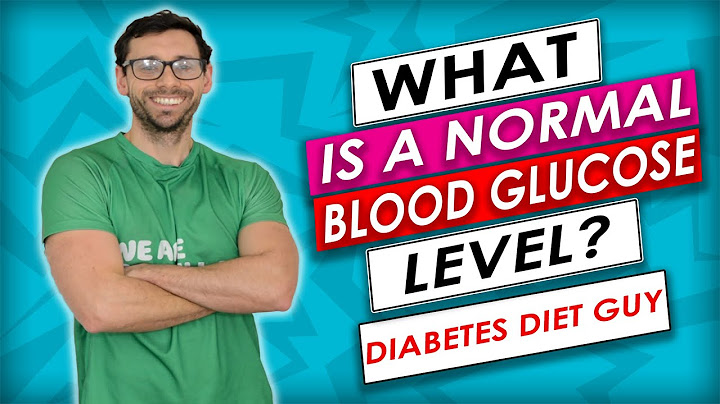 Show
Hair loss is not a common side effect of blood pressure medication, but it does happen sometimes. Image Credit: Voyagerix/iStock/GettyImages Medications to treat high blood pressure could leave you with significant hair loss. On the up side, it's not very common and the hair loss is likely reversible. Switching medications or exploring other possible reasons for your hair loss may help. Statistics about how often people on medications for high blood pressure — also known as hypertension — develop hair loss are scarce. However, hair loss due to medication is "not super common," says Paradi Mirmirani, MD, a dermatologist at Kaiser Permanente in Vallejo, California. But when it does happen, medication-related hair loss can be very disturbing. "Most people are pretty distressed by it," says Dr. Mirmirani, who specializes in treating hair loss. The Link to Blood Pressure DrugsMany blood pressure drugs have been linked to hair loss, but beta blockers appear to be the most likely to cause problems, says Dr. Mirmirani. There are many kinds of beta blockers. According to the Mayo Clinic, examples include acebutolol (Sectral), atenolol (Tenormin), bisoprolol (Zebeta), metoprolol (Lopressor, Toprol XL), nadolol (Corgard), nebivolol (Bystolic) and propranolol (Inderal, InnoPran XL). Blood pressure drugs known as ACE inhibitors have also been linked to hair loss, according to DermNet NZ. These may include benazepril (Lotensin), captopril, enalapril (Vasotec), fosinopril, lisinopril (Prinivil, Zestril), moexipril, perindopril, quinapril (Accupril), ramipril (Altace) and trandolapril, according to the Mayo Clinic. A Temporary IssueWill you go bald permanently if you develop hair loss that's linked to blood pressure medications? Probably not. The good news is that people typically see a reverse in hair loss from medication, Dr. Mirmirani says. That's because the medications that can cause people to shed hair don't permanently kill the hair-growing system, she explains. Instead, she says, the hair goes dormant, moving into what she describes as a "resting phase." "If the roots are OK, the hair does regrow," she says, just like leaves return to trees in the spring as long as the tree roots are healthy. In other words, the hair you lose due to blood pressure medication isn't likely to be lost forever. In many cases, you can look forward to regrowth. And, if you're tempted to stop taking your blood pressure medication if you start shedding hair, Dr. Mirmirani says that's a bad idea. "Don't stop the drugs on your own," she advises. "This is a shift in your hair cycle. Your blood pressure is more important." One option is to continue taking the medication to see if hair loss gets better. "The disruption usually improves with time so it's not as noticeable," Dr. Mirmirani says. "In most patients, it will peter out and normalize." Switching blood pressure medications is another option, she says, but that's something you would need to discuss with your doctor. Another strategy is to check to make sure you don't have other conditions, such as thyroid disease or iron deficiency, that could be contributing to hair loss, she adds. Why This HappensActually, it's not clear why some drugs have the side effect of hair loss. According to the Mayo Clinic, many factors can cause hair loss, including your genes (which cause male-pattern baldness or female-pattern baldness), illnesses, hormonal changes, stress and hair treatments. Also, blood pressure medications aren't the only culprits. Hair loss has also been linked to drugs that treat other conditions, including arthritis, cancer, depression and heart disease. Why blood pressure medications sometimes cause hair loss, though, is not clear, Dr. Mirmirani says. Oddly, one blood pressure medication can actually cause hair growth: It's minoxidil, which is both a blood pressure medication (known as Loniten) and a hair growth drug (known as Rogaine), according to the Mayo Clinic. Medications are designed to treat a variety of health conditions, but sometimes they can have unwanted side effects. Certain drugs can contribute to excess hair growth, changes in
hair color or texture, or hair loss. Drug-induced hair loss, like any other type of hair loss, can have a real effect on your self-esteem. The good news is that in most cases, it's reversible once you stop taking the drug. Drugs cause hair loss by interfering with the normal cycle of scalp hair growth. During the anagen phase, which lasts for two to seven years, the hair grows. During the telogen phase, which lasts about three months, the hair rests. At the end of the telogen phase, the hair falls out and is replaced by new hair. Medications can lead to two types of hair loss: telogen effluvium and anagen effluvium. Learn more about other causes of baldness. Telogen effluvium is the most common form of drug-induced hair loss. It usually appears within 2 to 4 months after starting the drug. This condition causes the hair follicles to go into their resting phase (telogen) and fall out too early. People with telogen effluvium usually shed between 30% to 70% more than the normal 100 and 150 hairs a day. Anagen effluvium is hair loss that occurs during the anagen phase of the hair cycle, when the hairs are actively growing. It prevents the matrix cells, which produce new hairs, from dividing normally. This type of hair loss usually occurs within a few days to weeks after taking the medication. It's most common in people who are taking chemotherapy
drugs for cancer and is often severe, causing people to lose most or all of the hair on their head, as well as their eyebrows, eyelashes, and other body hairs. The severity of drug-induced hair loss depends on the type of drug and dosage, as well as your sensitivity to that drug. Many different
types of drugs are thought to cause hair loss, including: Chemotherapy drugs often lead to the anagen effluvium type of hair loss. As these drugs kill cancer cells throughout the body, they also can
damage healthy cells, including hair matrix cells. The hair typically starts to fall out within two weeks of starting chemotherapy and progresses more rapidly after one to two months, according to the American Cancer Society. Hair loss is more common and severe in patients taking combinations of chemotherapy drugs than in those who take just one drug. Chemotherapy drugs that tend to cause hair loss include:
How Is Drug-Induced Hair Loss Treated?It's important to review any medications you take, and discuss their potential side effects with your doctor and pharmacist. When hair loss does occur from a drug you're taking, there is a good chance that the hair will grow back on its own after you stop taking the medication. If stopping the drug does not improve hair thinning, you may need to be treated with dutasteride (Avodart), finasteride (Propecia) or minoxidil (Rogaine), medications that slow hair loss and can stimulate new hair growth. Learn more about how finasteride treats alopecia. One technique may help prevent hair loss during chemotherapy. It's called scalp hypothermia, and it involves placing ice packs on the scalp a few minutes before -- and for about a half-hour after -- chemotherapy treatment. Cooling the scalp reduces blood flow to the hair follicles, making it harder for the chemotherapy drugs to get into the follicular cells. Cooling also reduces biochemical activity, making the hair follicles less susceptible to damage from chemotherapy drugs. One concern with this technique is the risk of cancer recurrence in the scalp, as perhaps this area did not receive the full dose of medication due to cooling vasoconstriction. After chemotherapy treatment, the hair usually grows back in very quickly, but it may change in texture. In rare cases, the hair will stay thin even after treatment has been stopped. Minoxidil can help regrow hair that is slow to return. Some chemotherapy patients wear a wig or hat to hide their hair loss until their hair grows back. There has been success in hair regrowth using low-level laser-based devices. The devices come as hats, helmets, caps, combs, and headbands. The laser technology stimulates the scalp and hair follicles, promoting hair growth and blood flow. What blood pressure medication helps with hair loss?Spironolactone is commonly prescribed to lower blood pressure and it may cause low blood pressure in those taking it for hair loss.. drowsiness.. nausea.. diarrhea.. headache.. dizziness.. irregular periods.. breast tenderness.. weight gain.. Which blood pressure medicine does not cause hair loss?Cozaar has a small percent of hair loss reported, but diarrhea did occur. Furosemide does not seem to cause hair loss, but both constipation and diarrhea have been reported. Furosemide is generally well-tolerated. Hydrochlorothiazide does not seem to cause either hair loss or diarrhea.
Which blood pressure medication has the least side effects?While the class of blood pressure-lowering medicines called angiotensin-converting enzyme (ACE) inhibitors may be prescribed more commonly, angiotensin receptor blockers (ARBs) work just as well and may cause fewer side effects.
Does lisinopril cause hair loss or thinning?Lisinopril Pills and Hair Loss:
Many medications can cause hair loss. Blood pressure pills like atenolol, lisinopril, losartan, and valsartan may have this effect (Kataria et al, Journal of Pharmacy Practice, Oct. 2017).
|

Related Posts
Advertising
LATEST NEWS
Advertising
Populer
Advertising
About

Copyright © 2024 muatrau Inc.


















